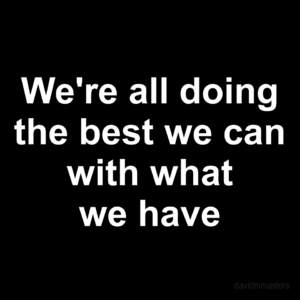If you’ve raised kids, are raising kids, or been a kid who’s gone through adolescence invariably, you, your parent, or both have cried out, “My teen is out of control!” (or something similar). Is it really just a phase? And What can you do about it?
Certainly. There is the normal level of adolescent behavior which accompanies the teen years indicating the teen’s quest to, in a sense, discover who they are and to establish their own identity. This process can be uncomfortable as he or she challenges all rules and boundaries. Normal adolescent behavior does not cross certain boundaries.
If you’re pulling your hair out or ready to scream “My teen is out of control” you might be witnessing something entirely different, and it is not your teenager’s loss of sanity.
When your teenager expresses themselves in a highly negative manner, they are not going crazy. When your teenager acts out by yelling and screaming, increases using foul and hate language at louder volumes, causes physical damage to inanimate objects, threatens or abuses others, your child is not crazy.
Neither is your child crazy for being insanely disrespectful, selfish and angry, refusing to honor curfew, staying out all night, getting drunk, high, and/or arrested. No, your teenager is not insane.
You might be surprised to discover that your out of control teenager is not really out of control at all.
The underlying message being communicated through all their appearing to be out-of-control is that your teenager does not have adequate skills to get their needs met, navigate social environments, negotiate, solve problems, communicate effectively, or create meaningful relationships.
So, they act out instead. And after a while, you lower your expectations and standards for your teen because it’s just too hard to deal with.
Now, who’s in control? Your out-of-control teen.
With all their inability to get their needs met, they’ve exerted their power over you by insolence, unrelenting force of will, and angst, and this becomes their method of getting what they want.
If left unchecked, this will follow them into adulthood, and all of us over the age of thirty can easily identify these individuals if they are fortunate enough to keep themselves out of prison. They are the bullies of our society, and we sometimes refer to them as narcissists.
Narcissists are either born or made. In this instance, these out of control teens learn to be narcissistic because this is the only way they know how to get through life. They are often accused of being mean, even though they are not acting out of any malice of intent.
These teens-turned-narcissists routinely hurt others as they try to get what they want or need any way they can, but they don’t mean to. They are just so focused on what they want, that they have no concept of any collateral damage which may occur as a result of exercising their methods.
They, just like you, are only doing the best they can with what they have.
Of course, the best method of preventing your child from becoming an out of control teen is to get to them early. A beloved mentor of mine once said, “If you don’t get them by age twelve, you will lose them.”
Even so, if you’re in the process of parenting a teen who you think is already out of control, there is hope, even though many parents are fearful of exerting any firm parenting skills in the fear that their out of control teen might dial 9-1-1, potentially landing the parent in jail. (This is a very fascinating state of affairs in our modern society.)
Without risking all, you can try to reason with your teen. Of course, their first reaction will be to deny any responsibility and blame their parents, the school, their friends, the societal and legal systems, their parents, and especially you for having to suffer their lot in life.
Maybe you can help them to discover new skills to get their needs met, navigate social environments, negotiate, solve problems, communicate effectively, and create meaningful relationships.
Be careful not to judge, ridicule, talk down to them, or preach to them. Listen to them and seek to understand what they are saying. Interject your thoughts gently and respectively, then let it go. Let your words simmer inside them. And love them.
Love them like there’s no tomorrow. Love them no matter what. Love them like it’s all there is, because it is.
Be a blessing, pray, and let love find the way.


